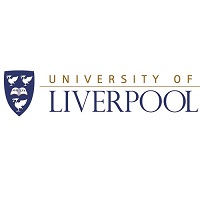Mapping COVID-19 through whole genome sequencing

A team from the University of Liverpool is part of a UK genomic sequencing alliance to map how COVID-19 spreads and behaves.
Using whole genome sequencing, the COVID-19 Genomics UK Consortium is working to analyse the genetic code of COVID-19 samples, providing public health agencies with a unique tool to combat the virus.
The Government and the UK’s Chief Scientific Adviser have backed the consortium, which brings together the UK’s leading clinicians and scientists. Through a £20 million investment, it is searching for breakthroughs to help the UK respond to this and future pandemics, and save lives.
Large-scale, rapid sequencing
Comprised of the NHS, public health agencies, Wellcome Sanger Institute, and numerous academic institutions, the consortium will deliver large scale, rapid sequencing of the cause of the disease and share intelligence with hospitals, regional NHS centres and the government.
Samples from thousands of patients with confirmed cases of COVID-19 are being sent to a network of sequencing centres, including Liverpool.
By looking at the whole virus genome in people who have had confirmed cases of COVID-19, scientists can monitor changes in the virus at a national scale to understand how the virus is spreading and whether different strains are emerging. This will help clinical care of patients and save lives.
Centre for Genomic research
The Liverpool work is being led by Professor Alistair Darby alongside Professor Steve Paterson and Professor Julian Hiscox.
Professor Darby, who co-directs the University’s Centre for Genomic Research with Professor Paterson, said: “By reading the genetic code of thousands of viruses we can track how the virus is spreading through a population. This evidence will help Public Health England guide policy decisions. This information is also incredibly useful in evaluating how effective new drugs or control measures are.”
Professor Paterson added: “COVID-19 is an unprecedented call to arms for university scientists to use our expertise and facilities in the fight to control the pandemic. The Centre for Genomic Research at the University of Liverpool has a world-leading reputation in genomic analysis of infectious disease. We are now exclusively focusing on COVID-19 research with our partners across the UK.”
Professor Hiscox, said: “In our lab we have worked for many years on coronaviruses, and so have been able to respond quickly to SARS-CoV-2. We have trialled rapid sequencing and deployed it against Ebola and MERS epidemics to track the evolution of the virus. These genomic methods have also helped us understand which individuals are most vulnerable developing severe disease.”
World-leading genomics expertise
Government Chief Scientific Adviser, Sir Patrick Vallance said: “Genomic sequencing will help us understand COVID-19 and its spread. It can also help guide treatments in the future and see the impact of interventions.
“The UK is one of the world’s leading destinations for genomics research and development, and I am confident that our best minds, working as part of this consortium, will make vital breakthroughs to help us tackle this disease.”





















